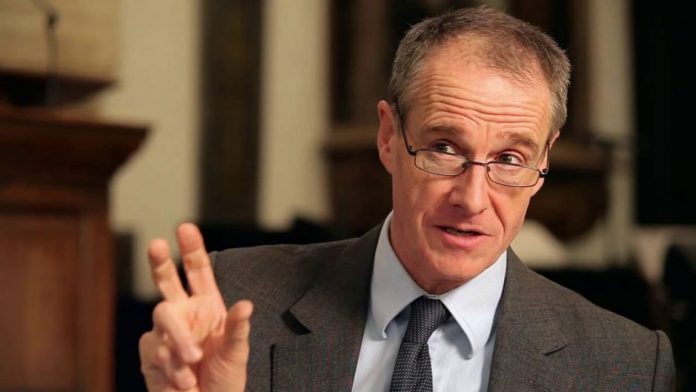“Yesterday evening a service took place at St Helen’s Bishopsgate in which 7 men from 4 dioceses were publicly commissioned for Christian leadership in Church of England churches.” So, begins, the latest video from St Helen’s, Bishopsgate, which has been circulating on social media.
The video is 26 minutes long, with an introduction by the Rector, Revd William Taylor, followed by sixteen interviews with retired bishops, clergy and laity, all of whom appear to support the actions taken by St Helen’s.
The video raises many questions and appears to misrepresent the work of the Church of England’s Evangelical Council (CEEC) in two significant ways. It is hoped that in the spirit of transparency, which Revd Taylor seeks from the House of Bishops, answers to the following questions will be forthcoming.
- Does Revd Taylor understand that CEEC can only offer ‘alternative spiritual oversight? If so, why does he call on churches to “recognise formally… that those diocesan bishops who voted for the faithless LLF proposals have broken partnership with faithful Anglican Christians and the true Churches of Jesus Christ,” “by seeking the “alternative oversight” provided by the CEEC?
- Does Revd Taylor understand that the Ephesian Fund, “provides PCCs and individuals with a way to give their parish share to the Diocese in support of similar churches”? If so, why does he call on churches, “to cease paying any parish share to the Church of England” by suggesting that it is possible to “divert parish share into the Ephesian Fund or a local Good Stewards Trust to pay for it?”
- On whose authority and on behalf of whom, does Mr Taylor speak when he makes his, “appeal to… numerous other churches, and lay and ordained leaders of CEEC and the Alliance” to “seek alternative oversight… cease paying any parish share to the Church of England… if not now, when?” and challenge the diocesan bishops of the Church of England?
- If the men, “were commissioned as public leaders and for public ministry in Training Posts in CofE churches” and “into the equivalent of Title Posts” why have their identities not been made public, the film released blurred to prevent identification and their “Training Posts” or “Title Post” equivalents not announced?
- Who will licence these men as “new leaders of churches in the Church of England” for future ministry “in the Church of England” to “serve in leadership in Church of England churches and Church of England church plants”?
- If those commissioned are ordained “in due course”, why will that be done “less publicly” than the commissioning?
- Revd Taylor states that “in St Helen’s and her sister churches [those commissioned] will be teaching the scriptures regularly within the congregations where they lead and will preside at informal church family meals at which bread is broken and the death of the Lord Jesus is remembered,” later describing the latter as, “informal sacramental ministry”:
- What is the difference between these ‘informal family meals at which bread is broken’ and the celebration of Holy Communion as provided for by Canon B14 and how is that difference manifested?
- Will these ‘informal family meals’ take place entirely additionally to or in (partial) substitution for the Holy Communion services taking place as required by Canon B14?
- How will a visitor to a church where such an ‘informal family meal’ is taking place be aware that the person ‘presiding’ is not ordained?
- Why “is there a very real risk that some people will not be able to exercise leadership and Ministry and the commissioning of these people this evening is going to make that possible,” as Canon Dunnett claims, if the men were according to Rt Revd Julian Henderson “commissioned as lay workers in the Church” ?
- Rev Taylor, claims that St Helen’s, Bishopsgate are required to act in this way because “close to 50% of the Church of England.. cannot accept the innovations”?
- What is the evidence that 50% of the Church of England, as opposed to 50% of the General Synod, cannot accept the bishops’ innovations?
- What is the evidence that even if “50% of the Church of England” cannot accept the bishops’ innovations, they also want “structural provincial provision” made for them?
- In what way is the “pathway for selection, training and commissioning and, in due course, ordination, of multiple paid Christian ministers, separate from the compromised leadership of the majority of the House of Bishops,” which Revd William Taylor claims, “has been established,” open to the vast majority of churches where the PCC is not able to pay for an ‘extra’ lay minister?
Many of these questions are not new – so Anglican Futures looks forward at last to public answers to these questions, as Revd Taylor says,“if not now, when?”



